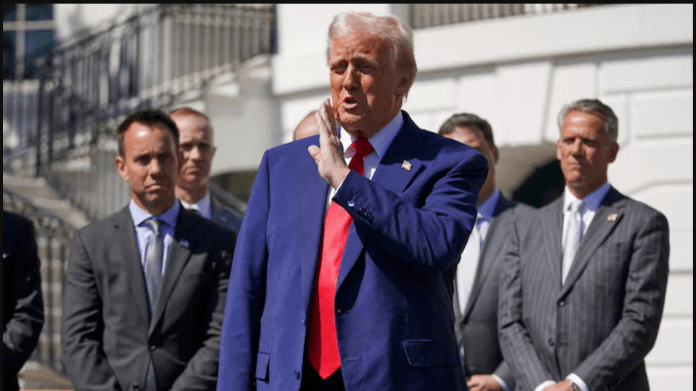
Trump in legal standoff over deportations
The Trump administration is at the center of a brewing constitutional standoff with the judiciary, as federal judges threaten criminal contempt proceedings over controversial deportations to El Salvador.
Two federal judges have raised the prospect of contempt charges against government officials for allegedly ignoring court orders related to deportations of migrants accused of being part of criminal gangs now designated as foreign terrorist organizations.
On Wednesday, Judge James Boasberg warned of probable cause to hold the administration in contempt after officials failed to return a plane carrying Venezuelan migrants to the U.S. The migrants were being deported to a high-security detention center in El Salvador, despite a court order mandating their return so they could challenge their removal.
Another judge, Paula Xinis, expressed frustration on Tuesday over the mistaken deportation of Kilmar Abrego Garcia, a Salvadoran man who had been ordered by the court to remain in the U.S. She also raised the possibility of contempt action and demanded transparency from the Department of Justice regarding efforts to bring Garcia back.
Judge Boasberg sharply criticized the administration’s defiance, stating, “The Constitution does not tolerate willful disobedience of judicial orders — especially by officials of a coordinate branch who have sworn an oath to uphold it.” He emphasized that the administration was not required to reverse the deportation, but at minimum must provide the migrants an opportunity to appeal the decision in court.
The Justice Department has invoked the 1798 Alien Enemies Act to justify its actions, arguing the migrants are affiliated with the Tren de Aragua criminal gang, recently labeled a foreign terrorist organization. It further claimed that once the deportation flights were airborne, they were outside the court’s jurisdiction.
Boasberg has warned that if the Justice Department refuses to prosecute officials involved in disobeying his order, he will appoint an outside lawyer to take up the case.
In Garcia’s case, Judge Xinis had ordered the government to return him from El Salvador, fearing potential violence if he remained there. While the Supreme Court partially backed the order, it only required the administration to “facilitate” his return—not ensure it.
El Salvador’s President Nayib Bukele, during a meeting with Donald Trump at the White House on Monday, said Garcia would not be released from the notorious Centro de Confinamiento del Terrorismo (CECOT), a prison for dangerous gang members. U.S. Attorney General Pam Bondi echoed that position, calling the matter settled.
Taking a strict reading of the Supreme Court’s directive, Bondi stated the U.S. would only assist with transport if El Salvador released Garcia voluntarily.
Judge Xinis, unsatisfied with the administration’s limited cooperation, ordered four government officials to sit for depositions next week. She criticized the government’s lack of transparency, saying, “There will be no tolerance for gamesmanship or grandstanding.”
Legal experts believe the cases could end up back at the Supreme Court, potentially escalating into a historic confrontation between the executive and judiciary.
Trump has dismissed Judge Boasberg as a “radical left lunatic,” and some Republican House members have introduced a resolution to impeach him.